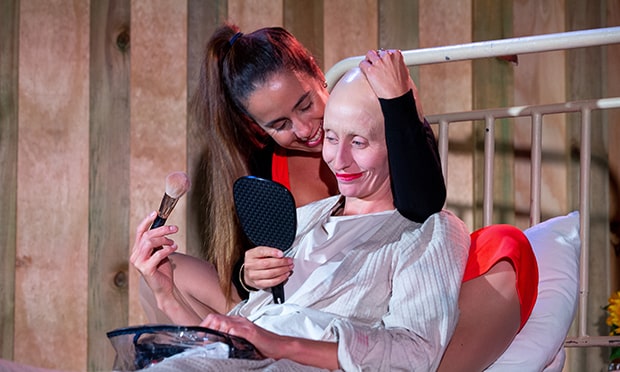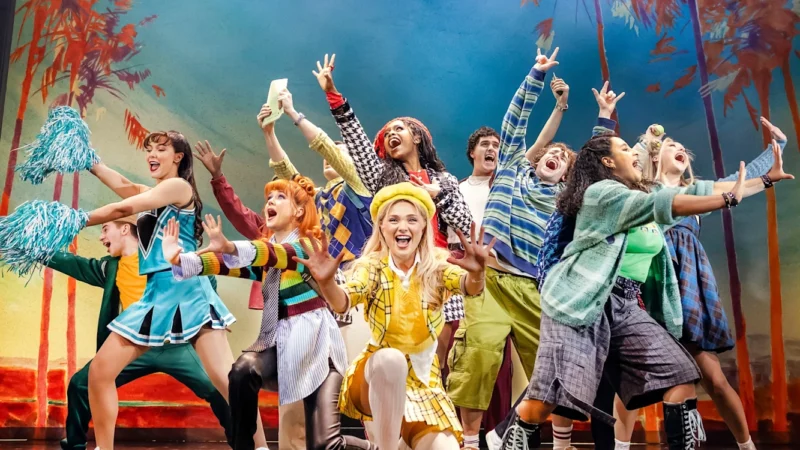Arcola Outside
‘Beauty buried in pain’
Greeted by an IV bag, hospital screens and unbelievably the smell of antiseptic (psychosomatic perhaps?), something hints that Hopes & Fears is not a happy-clappy experience.
Death, love, betrayal, family obligation and terminal illness are all explored, yet with a score based on Claude Debussy, beauty is found buried within pain.
Two different women’s experiences with cancer are shown, intersected by true stories of this most hateful disease.
The piece thankfully is comprehensive and delicate in its dealing with the difficult subject matter. Created in partnership with Shine, a cancer support organisation, this is the point where theatre and charity combine with far-reaching consequences.
Panaretos Kyriatzidis arrangement around the French composer’s classic dream-like scores is inventive and heartfelt. The music swells, and it is even more impressive considering that its crafted by Kyriatzidis on piano, Alison Holford on cello, and Elizabeth Marr on flute.
Jorge Balça’s stage is simple and effective, but the decision to hide most of the musicians behind a screen is a shame considering the effect they produce.
Kyriatzidis (also musical director) has an over-reliance on solo arias, meaning that at times the show can feel a little repetitive. The few duets and even rarer choral moments are highlights and perhaps could be expanded if the show ever transforms into a full- length opera.
Becca Marriot’s libretto is sometimes clumsy and uses obvious rhymes (at times) to create musical loops. Alexander Ridger’s predilection for spotlights transforms the sometimes difficult outdoor stage into intimate solo experiences.
All involved are talented singers, yet all exhibit the classic operatic tendency to over-dramatise. The fact that the show is in English means that this dissonance is both a blessing and a curse.
Caroline Carragher as the nurse is a musical powerhouse, and one of the more subtle actresses, producing real tears in a tender moment. Martins Smaukstelis as the wayward son Adrian delights, and his father Paul Putins provides a deep male presence for the female-dominated show.
Lara Martins and Becca Marriot (despite a dreadful bald cap) are a heart-warming couple navigating the hell of illness, death and goodbye. Vocally, Nina Bennet as a lonely mother calling for her son is a showstopper – static but with such incredible musical power, she is helped by having a juicy duet with her son Smaukstelis, and a lovely refrain where she calls desperately for him. The haunting call of Adrian ripples through the audience like a wave of yearning.
The use of the whole circular space is inspired, and the audio sections (although sometimes jumpy) break up the solos nicely. Sadly, the piece is about 15 minutes too long, and has a natural end with Clair De Lune that is then passed over. Despite some lovely directorial choices form Balça, the climax feels poorly thought through in comparison to the rest of the show.
Nevertheless, the operatic penchant for melodrama and the heavy-duty subject matter shouldn’t put you off! Yes, it isn’t a walk in the park, but to struggle is human, and this production faces the music all pipes blasting. I hope the experience heals wounds in the audience, bathing them in the calming balm of sound and awakening a feeling of appreciation for life, however fleeting.



